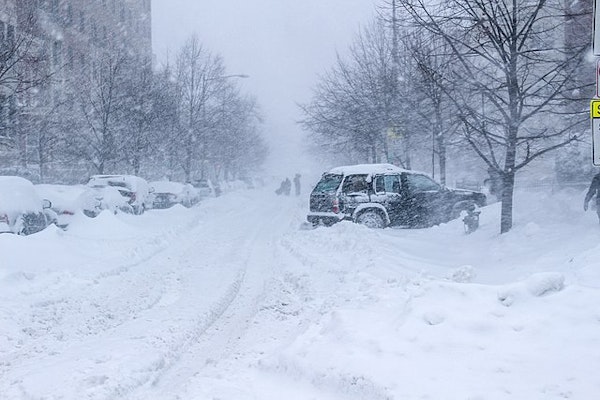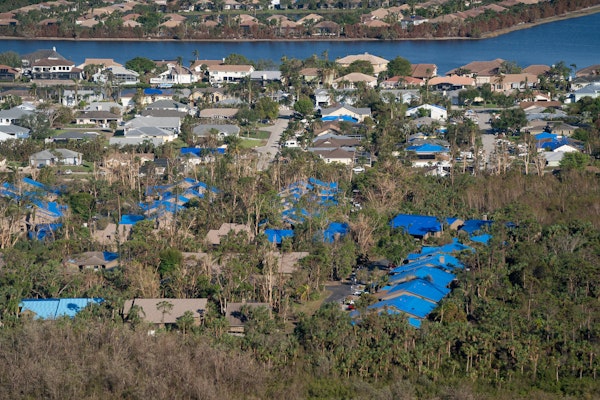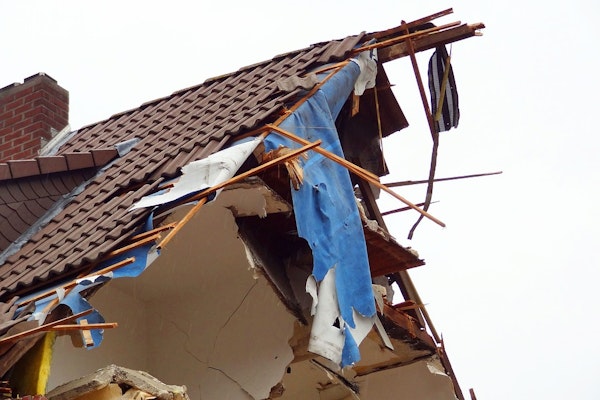
How Aerial Imagery and Machine Learning Are Reshaping Property Claims
Aerial imagery, supervised machine learning, and Gen AI are expanding underwriting and claims capabilities, but insurers face mounting pressure to validate data, manage uncertainty, and protect customer trust.
March 3
Catastrophe
Property
Risk Management
Technology

2026 Claims Insights: Carrier Strategies on Social Inflation, AI Fraud and Workforce Risk
New survey data shows carriers recalibrating underwriting, fraud detection and workforce strategy as social inflation, AI-generated fraud and catastrophe losses intensify.
March 2
Auto
Catastrophe
Fraud
Insurance Industry
Legislation & Regulation

Extreme Heat Drives Workers’ Comp Claims as OSHA Extends Enforcement Program
Federal inspections continue while state heat standards tighten. Claims data shows accident rates rise sharply above 90 degrees (F), raising exposure for high-risk industries.
March 2
Catastrophe
Legislation & Regulation
Property
Risk Management
Workers' Compensation

Cold Winter Linked to Pennsylvania Avian Influenza Surge
An unusually cold winter may have pushed infected wild birds toward farms, triggering early-season H5N1 losses across the state’s poultry sector.
March 2
Catastrophe
Property
Risk Management
Underwriting
Pennsylvania

Florida Wildfire Burns 25,000+ Acres in Big Cypress During Winter Drought
Uncontained blaze in Big Cypress National Preserve closes I-75, raises smoke and liability concerns for Florida claims adjusters.
March 2
Auto
Catastrophe
Property
Risk Management
Florida

More Winter Storms Target Midwest, Northeast After $38B Blizzard Losses
New snow, ice, Arctic air, and potential flooding could generate fresh property and auto claims just days after a multibillion-dollar blizzard.
February 25
Auto
Catastrophe
Property
Risk Management
Underwriting
Illinois
Indiana
Iowa
Massachusetts
Michigan

Ohio Asphalt Companies to Pay $30M to Settle False Claims Act Allegations
Two Ohio asphalt contractors agreed to pay $30 million to settle allegations they submitted falsified testing data on federally funded highway projects.
February 19
Catastrophe
Fraud
Legislation & Regulation
Property
Risk Management
Ohio

78% of Insurers Plan Higher Tech Budgets in 2026, Survey Finds
Survey data shows carriers and brokers ramping up AI, cybersecurity and digital platforms as claims, fraud and catastrophe pressures intensify.
February 19
Catastrophe
Fraud
Insurance Industry
Litigation
Risk Management

NFIP Debt and Low Uptake Leave Texas Flood Losses Largely Uninsured
Texas Hill Country floods reveal low insurance uptake, mounting NFIP debt, and growing pressure on FEMA’s Risk Rating 2.0 reforms.
February 19
Catastrophe
Insurance Industry
Legislation & Regulation
Property
Risk Management
Texas

North American Insurers Face Structural Claims Cost Shift in 2026
Gallagher Bassett’s 2026 Carrier Perspective report finds social inflation, medical costs, catastrophe losses and AI-driven fraud are compounding severity and workforce pressure for carriers.
February 17
Auto
Catastrophe
Fraud
Insurance Industry
Litigation

Florida Property Reinsurance Rates Poised to Fall as Reinsurers Reassess Litigation Loads
Gallagher Re’s Adam Schwebach says mid-year renewals could bring added capacity, rate reductions, and renewed appetite for underwriting hurricane risk in Florida.
February 17
Catastrophe
Insurance Industry
Legislation & Regulation
Property
Risk Management
Florida

Public Safety Power Shutoffs Expand Beyond California Amid Growing Wildfire Risk
Utilities across the West are increasingly cutting power during high-risk weather, reshaping wildfire prevention strategies and claims exposure for insurers.
February 9
Catastrophe
Insurance Industry
Legislation & Regulation
Liability
Property
California
Colorado
Nevada
New Mexico
Texas

Why Bloomberg Says Premium Caps Could Worsen the Homeowners Insurance Crisis
A Bloomberg editorial urges policymakers to focus on resilience, legal reform, and mitigation rather than capping rates or penalizing insurers as premiums climb nationwide.
February 6
Catastrophe
Insurance Industry
Legislation & Regulation
Litigation
Property
California
Florida
Illinois

Winter Storm Fern Losses Could Reach $4B, Verisk Estimates
Freeze-related property damage and power outages across 14 states are driving insured losses that could make Fern one of the costliest winter storms on record.
February 4
Auto
Catastrophe
Insurance Industry
Property
Risk Management

2026 P/C Market Forecast: Competition Rises, Combined Ratios Improve, AI Expands
Fitch expects broader P/C softening in 2026, while Morningstar says casualty pricing will stay out of step due to litigation and severity. Early earnings-call commentary shows carriers leaning on portfolio mix, disciplined underwriting, and AI tools to protect margins.
February 4
Auto
Catastrophe
Excess & Surplus Lines
Insurance Industry
Litigation




